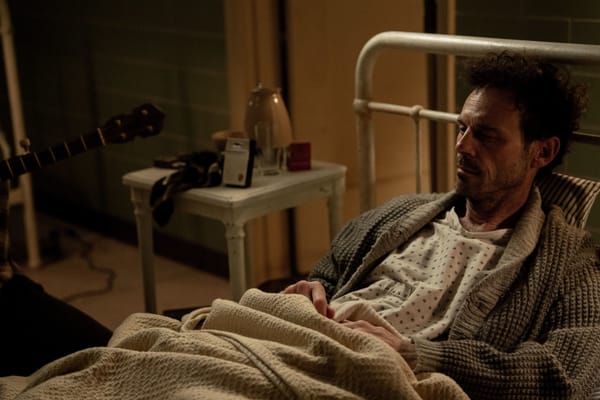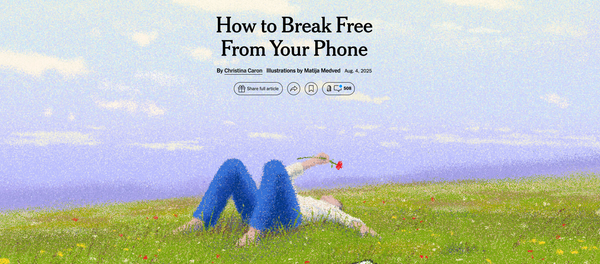Edith Ackermann wants you to take responsibility
~or~ Kyle wants to teach more constructivism theory via Star Trek GIFs
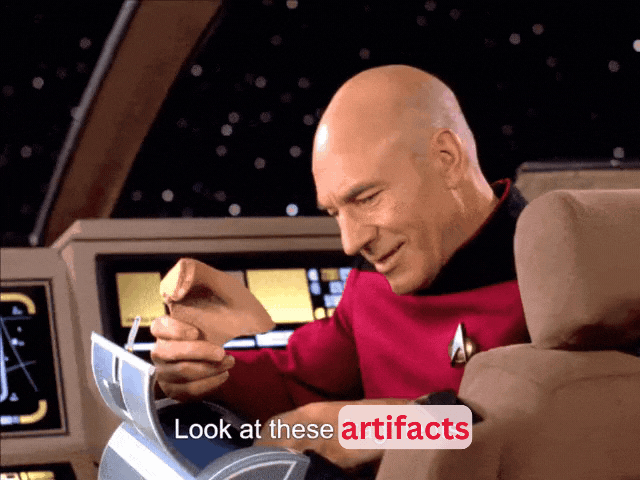
This week is my favorite of the semester in Adapting Christian Formation, because we're talking about artifacts. This is one of the bits of academic jargon that can't be replaced by a less fancy word—mostly because it's not that fancy to begin with.
When I say artifact, what do I mean?
An artifact is an object. A thing. A unit of stuff. A piece of media. A teaching aid. A learning output. All of the above and more.
For me, one of the best definitions of learning is as what Edith Ackermann calls "a conversation with artifacts." Here's the key excerpt from her challenging but gorgeous piece "EXPERIENCES OF ARTIFACTS: People’s Appropriations / Objects' 'Affordances'":
Learning as a conversation with artifacts. People learn by switching roles from being producers to being critics, from being actors to being audiences, from holding the stage to moving into the background. People also zone in and out of situations to change their stance. In other words, no matter how embedded we are in a situation there comes a time when we distance ourselves to look at things from afar. Putting on a critic’s hat and shifting perspectives enable us to engage our own creations as-if they had been produced by ‘another’ or existed independently, and then, reengage them again … [Designers] start a dialogue with a whole range of interlocutors, imaginary or ‘real’, to whom they address their work and from whom they borrow, or draw inspiration. (pp. 3-4, emphasis hers)
So a film student might watch an example from a famous scene and think, "What is the director trying to communicate here." Or they might think, "How would I have shot this scene differently?"
But Ackermann says there's a problem for teachers as we seek to facilitate these juicy and fruitful conversations—at least if we believe in constructivist learning theory. (<– That post is worth it just for the Patrick Stewart GIFs, plus you might need it to follow the rest of this one.)
If learning is a conversation with artifacts, then we can guide but not control the conversation that our learners decide to have with the artifacts we place before them.
We can hope they will identify the takeaways we want them to, accommodating their existing beliefs when confronted with challenging new ideas or assimilating within their existing beliefs those ideas and data points that already make sense within their worlds.
Sometimes that doesn't happen. Let's use preaching as our example. As the preacher-as-teacher knows all too well, sometimes our listeners-as-learners are simply confused. They have trouble following and/or might choose to simply tune us out.
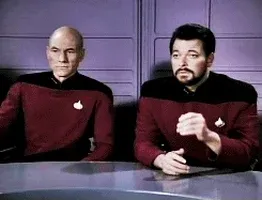
Other times we strike a nerve, but instead of engaging in assimilation or accommodation, a listener simply rejects the learning we intend to put on the table.
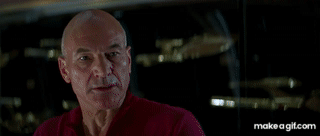
The gist of my students' reading for this week is that, yes, it's frustrating that sometimes students learn "the wrong things" from the materials we put in front of them. But that doesn't mean we give up. In fact, it increases our responsibility to design or choose artifacts that we deem have the best chance to communicate our message—or at least convene a conversation aligned with our intentions:
Like a good conversationalist, a well-designed object is one that ‘knows’ how many surprises and wonders contribute to capture people’s imagination ... [I]t seems essential for designers of human-made artifacts (from educational software to playgrounds and books) to take responsibility for their products by not assuming –I caricature the constructivist’s stance– that learners will use them as a Rorschach stains anyway ... Designers need to acknowledge that their products will survive after them, and that it is ultimately the built artifact, rather than the builder’s intentions, that becomes part of other people’s cultural heritage. It is ‘its’ qualities that will persist to evoke or signal potential uses to newcomers who encounter them for the first time. Denying the power of places and things to impact people can bread a culture of ‘not caring’. (p. 7)
The lecture from which I've drawn this material is called "Reinventing the wheel, or not, AKA the ongoing ir/relevance of curriculum." I try to make the point that (1) much of the commercially available curriculum formation leaders might purchase makes no-longer-helpful assumptions about how the materials will be used, and by/with whom. Don't be afraid to ignore or substantially remix commonly circulating curricular resources, I say.
But on the other hand, (2) at least the various artifacts we gain access to when we purchase a curriculum have been assembled by experts and field-tested with real learners. When we choose to reinvent the wheel, sometimes our version isn't as round, or light, or durable as the artifact we intended to replace.
Ultimately, teachers have to take responsibility for our artifacts: the old stand-byes, the radically reimagined, and our own original creations.
How are our learners receiving them? What are they taking away? Are student outcomes matching our educational intentions, or are the materials we share practically a Rorschach test for students' (possibly) irrelevant priorities and projections?
A key step in taking responsibility is assessing participants' learning, a topic we'll get to soon.
